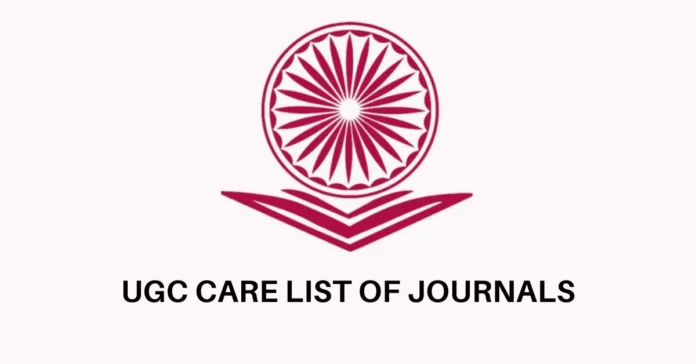In a significant shift for India’s academic community, the University Grants Commission (UGC) recently announced discontinuing its CARE (Consortium for Academic and Research Ethics) list of approved journals. This decision, aligned with the National Education Policy (NEP) 2020, aims to transform how research quality is assessed, moving away from rigid metrics to foster innovation and integrity. Let’s unpack why this change (UGC CARE List Discontinued) matters and what it means for researchers and institutions.
What Was the UGC-CARE List?
Launched in 2018, the UGC-CARE list was a benchmark for credible academic journals in India. Its goal was to combat predatory publishing—where low-quality journals exploit researchers for fees—by curating a list of reputable platforms. Universities often mandate publications in CARE-listed journals for career advancement, making it a cornerstone of academic evaluation.
Why Was the CARE List Discontinued?
- Combating Predatory Journals: Despite its intentions, the CARE list struggled to keep predatory journals at bay. Some dubious outlets allegedly manipulated their way onto the list, undermining its credibility.
- Quantity Over Quality: The list inadvertently pressured researchers to prioritize publishing in approved journals over producing meaningful work. This “publish or perish” culture often led to fragmented, low-impact studies.
- One-Size-Fits-All Approach: A standardized list failed to address disciplinary diversity. Fields like humanities and social sciences, where books and conferences hold weight, were disadvantaged compared to science disciplines reliant on journal articles.
What’s Next? A New Framework for Research Evaluation
The UGC’s new policy emphasizes flexibility and holistic assessment:
- Subject-Specific Committees: Expert panels in each discipline will evaluate research quality, ensuring nuanced, field-relevant criteria.
- Diverse Outputs: Beyond journals, publications like books, conference papers, and creative works will gain recognition, reflecting varied academic contributions.
- Emphasis on Ethics and Impact: The NEP 2020 prioritizes research that addresses societal challenges, encouraging innovation over mere metric compliance.
Implications for Researchers and Institutions
- For Researchers: Focus shifts to producing high-quality, impactful work rather than chasing journal quotas. Early-career researchers may benefit from reduced pressure, though they’ll need to navigate evolving evaluation standards.
- For Institutions: Universities must revise promotion and funding criteria, and training evaluators to assess diverse outputs effectively. Collaboration with disciplinary experts will be key.
- Challenges Ahead: Ensuring transparency in the new system and preventing biases in peer review will be critical. Institutions must also educate researchers about predatory publishing risks.
Conclusion
The UGC’s decision marks a pivotal step toward fostering a more ethical and inclusive research ecosystem. By valuing quality and diversity over rigid checklists, India’s academia can better address global challenges and nurture groundbreaking scholarship. As the new framework takes shape, staying informed and adaptable will be crucial for all stakeholders. The end of the CARE list isn’t just a policy change—it’s an invitation to reimagine what meaningful research looks like.
Call to Action
Researchers and institutions should engage with UGC’s upcoming guidelines and participate in consultations to shape a fair, robust evaluation system. Let’s champion integrity and innovation in India’s academic journey!
10 FAQs on the UGC-CARE List Discontinuation
- Why was the UGC-CARE list discontinued?
The UGC discontinued the CARE list to address issues like predatory journal infiltration, the “publish or perish” culture prioritizing quantity over quality, and the need for a more flexible, discipline-specific research evaluation system aligned with NEP 2020. - What replaces the CARE list for evaluating academic research?
A new framework will use subject-specific expert committees to assess research quality, recognize diverse outputs (books, conferences, patents), and prioritize ethical, impactful work over rigid journal lists. - How does this align with the National Education Policy (NEP) 2020?
NEP 2020 emphasizes holistic, innovation-driven research. The shift away from standardized lists supports interdisciplinary work and research addressing societal challenges, moving beyond metric-driven evaluations. - What were the key criticisms of the CARE list?
Criticisms included loopholes allowing predatory journals to enter the list, pressure on researchers to prioritize CARE-listed journals over meaningful work, and inadequate representation of humanities/social sciences. - How will researchers’ work be evaluated now?
Evaluations will focus on quality, originality, and societal impact, assessed by disciplinary experts. Contributions like books, policy reports, and creative works will also count, not just journal articles. - What steps is the UGC taking to curb predatory journals?
The UGC will rely on institutional ethics committees, promote awareness about predatory publishing, and encourage universities to adopt rigorous internal review processes for publications. - Will this affect ongoing PhD submissions or faculty promotions?
Existing publications in CARE-listed journals remain valid, but future evaluations will follow the new guidelines. Institutions must update their criteria to reflect the emphasis on diverse, high-quality outputs. - How can researchers identify credible journals now?
Researchers should consult global databases (Scopus, Web of Science), seek peer recommendations, and verify journals’ editorial boards, peer-review processes, and indexing status to avoid predatory outlets. - What does this mean for universities and institutions?
Institutions must revise promotion/funding policies, train evaluators to assess diverse research outputs, and collaborate with subject experts to implement the UGC’s flexible, ethics-driven framework. - How does the new system address disciplinary diversity?
Subject-specific committees will tailor evaluation criteria to field norms (e.g., valuing books in humanities or patents in engineering), ensuring fair recognition of varied academic contributions.
Key Takeaways:
- The shift prioritizes research integrity and impact over arbitrary journal lists.
- Researchers should focus on meaningful, ethical work while staying vigilant about predatory practices.
- Institutions must adapt swiftly to ensure smooth transitions under the new framework.

